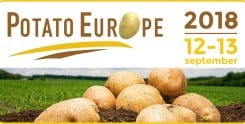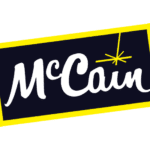In Germany, potato cultivation takes place on more than 29,000 farms with a combined area of about 250,000 hectares. The total includes approximately 20,000 small producers with less than five hectares of potato cultivation, with the remaining 9,000 farms growing larger areas of the crop. On average, Germany producers 10 to 11 million tonnes of potatoes annually, making it the largest potato producer in the European Union (EU).
This sector generates an estimated value added return of more than three billion euros each year through sales of three main income streams: food, industrial and seed potatoes. These dimensions underline the importance of the potato sector in Germany – and the industry’s important position the EU – yet, on average, the German potato crop only accounts for about two percent of the country’s farmland.
The challenges facing the industry include preserving the value and diversity of the potato as a food in the consciousness of society. Hopes for positive developments on the demand side were realized in 2017 when an increase in consumption reversed the declining trend for the first time in many years. This needs to be expanded at all levels, whether through a strict quality program or attractive marketing and communication concepts. The scope for promotion is large , considering the potato has high nutritional content and are water efficient.
Another example is the steady development in quality assurance and traceability. Since 2004, UNIKA has been a founding shareholder of Fruit, Vegetable and Potato committee of Germany’s QS quality assurance scheme, and our common goal is to find practicable answers to specific questions in order to be able to offer high-quality food reliably and safely along the production chain. About 32,000 system partners, including more than 3,300 from the potato sector, are located along the Fruit, Vegetables and Potatoes QS chain.
Also important to the sector is constructive dialogue with food retailers. The requirement profiles of potato buyers are becoming more and more detailed; they now go beyond the usual industry norms, and can include certification for quality specifications such as form and inputs. In addition, answers to societal demands regarding sustainability and resource efficiency must be developed. Before these numerous tasks, however, it must not be overlooked that potato cultivation also depends on the availability of suitable plant-protection products to prevent resistance and allow production of high-quality products. These measures can also be used to counteract yield and storage losses.
From UNIKA’s point of view, action areas in the political sphere include the expansion of federal research institutes, the protection of phytosanitary hygiene standards in Germany, the reduced availability of plant protection products and the expansion of project-related research funding into the outlined subject areas. Additionally, we are facing rapidly changing conditions in the potato industry as well – from shifting climatic factors to the entry into agriculture 4.0.
In order to meet these complex demands facing the industry, the development and expansion of intensive research work is required for potatoes which is a crop that has been grown for a very long time. Examples include resistance breeding against new and old pests using innovative techniques, the development of integrated pest management programs and the improvement of nutrient efficiency. The demand of our society for more environmental protection, while maintaining high-quality food at favorable prices, can only be achieved with the help of plant breeding. Here, society has to decide on the priorities. These goals can only be achieved with the help of new breeding methods, which can significantly speed up the work. Cross-breeding of natural resistances into our commercial cultivars using conventional methods can take up to 20 years to achieve a marketable variety, but with the help of CRISPR-Cas this could be done in half the time.
The PotatoEurope 2018 trade fair is organized by the DLG with the support of UNIKA. More information is available from Dr. Wilfried Wolf at the DLG by Tel: +49 (0) 69 247 88 272 or Email: [email protected]
Information is also available online at www.potatoeurope.de











